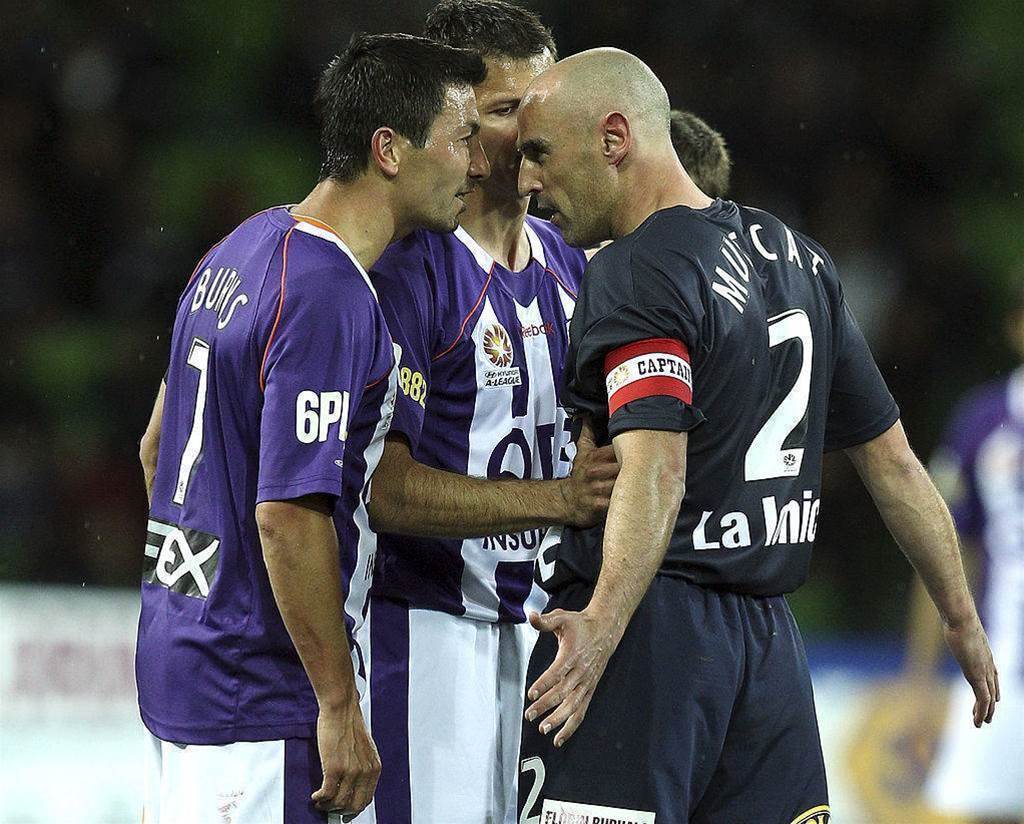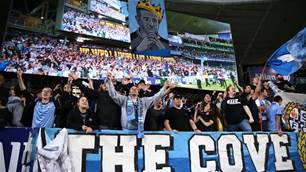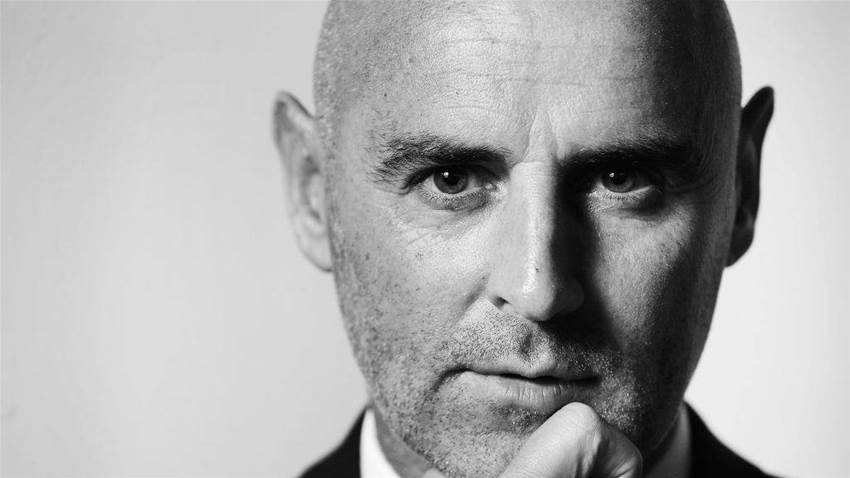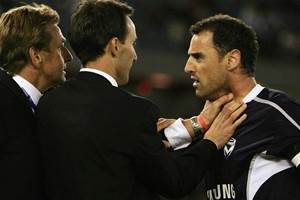Kevin Muscat's impact at Melbourne Victory stands alone as the single greatest influence on an A-League club.
While multiple A-League clubs have shared resounding successes, Victory are the only club to establish a culture of loyalty, which could survive and thrive despite attacks at active support, FFA turmoil, high ticket prices and the establishment of a new club aimed directly at their catchment area.
This unique achievement is the result of a consistent board, stable ownership, continued funding and strong marketing. But all of that’s proven to mean little without a leading figurehead: a passionate symbol of what the club means to real people.
Muscat became the most effective and most unlikely role model in A-League history.
Herein lies the significance of his legacy. In a league vying for relevance in a market saturated with claims for the Australian public’s hearts and minds, clubs need to be more than just entertainment purveyors and content providers.
Fans need to have icons. They need one-club men that would never give their rivals a guard of honour, let alone don an opposing kit.

If they’re flawed anti-heroes all the better. The public need someone who’s hated, yet secretly admired by their mates; a conflicting emotion which they can wear as a badge of honour.
In 2000, Martin Grainger called Muscat "...the most hated man in football", but as England hero Terry Butcher summed up: "Every manager in the A-League would love to have Kevin, and I'm no exception.”
Even with the emergence of yet another contender out West, Victory are a giant set in stone. But while Melbourne’s loss is the A-League’s loss also, perhaps there lies a timely ray of sunshine over the horizon.
Australian football requires another true contender for Victory’s status, not just on the pitch, but in the public’s hearts.
Sydney share the A-League Premiership and Championship records, they share the stable ownership, funding and marquee status, but with Alex Brosque's retirement, they now lack that fiery figurehead that galvanises fans.
Steve Corica, the quiet, studious coach affectionately known as ‘Bimbi’, couldn’t be any further from Muscat’s demeanour.
The old English Championship abounds with stories of a virulent Muscat protecting his then-teammate Corica at Wolverhampton from booing or jeering fans. For every sinew of aggression Muscat encompasses, Corica is equally calm and measured.
But what they do share is loyalty and dedication. Corica, too, is a foundation player at Sydney. He also delivered two Championships as captain, including raising the inaugural trophy as goalscorer in the first ever A-League Grand Final.
Related Articles
.jpeg&h=172&w=306&c=1&s=1)
Langerak to bolster Victory's ALM title bid in January

Sky Blues, Wanderers to clash in ALM first-round derby














